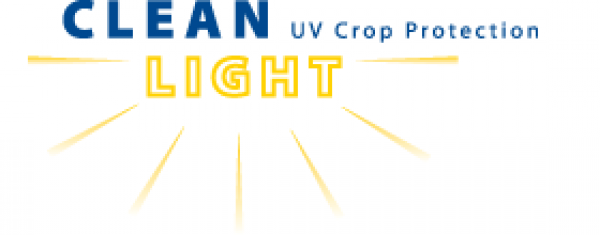Arne Aiking, inven-many chemicals in many industrial tor of the Clean Light processes. For example: In many Technology, that has cities, the drinking water does now been adopted by not smell like chlorine anymore. some innovative rose growers in Chlorine has been replaced with East Africa, writes about what this germicidal UV. Safer and cheaper. technology can do for horticultural In many hospitals, the smell of for-farms. maldehyde is gone. Formaldehyde
When i had my own farm in has been replaced with UV. Safer the southern USA, i developed a and cheaper. technology, allowing my workers However, germicidal UV can hurt to control mildew, botrytis, and the crop. Furthermore, germicidal other diseases on the crop, by UV lamps, such as used in water disusing specially designed lamps. infection, generate ozone and other in this article, i will explain how dangerous byproducts. That can it works. be damaging for crops as well. And,
most importantly, germicidal UV can My invention, the UV Crop hurting the plants. Germicidal UV hurt the eyes of workers. So, we in the Protector Technology, eliminates Fungus life cycle
The use of germicidal UV to sterifarming world concluded, correctly: those barriers. Today, you can use Mildew, Botrytis etc. are fungus lize water, air, or swimming pools is “In farming we cannot use UV to re-UV on greenhouse crops, without species. Fungus has two life stages: nothing new. UV has been replacing place those expensive chemicals” hurting the workforce, and without 1) “Spores” (sort of like the seed
stage of a plant); and 2) “Mycelium” (sort of like the vegetative stage of a plant).
because of reduced spraying the crop will be stronger, more productive and will produce higher quality
If we want to kill the spores, we have to apply a high dosage of UV light. That requires very strong bulbs, and many seconds of exposure time. Not practical in the greenhouse. Furthermore, it creates problems for the crop, for the workers, and for the beneficials.
If we want to kill the mycelium, just a tiny little bit of UV light suffices (a low dosage). One second of exposure time is more than enough. That is safe for the crop, safe for the workers, and safe for the beneficials.
So, by applying this low dos¬age, on a daily basis, we kill the mycelium every day, before it can make spores, and before it can penetrate the plant. on the farm So, how does this work in the field ?
Water disinfection lamps are dangerous. They create all the problems we spoke about earlier for people, for crops and for beneficials. We have developed UV Crop Protectors, which give a well balanced low dosage of UV light. Safe for workers. Safe for the crop. Safe for beneficials. But literally killing for mycelium.
Hardi Kenya Ltd and Charles Gerard Ltd are our local partners making this technology available for East African growers of any kind.
The basic model is the UV Crop Protectors mounted onto a simple rugged, man-operated cart. Think of a wheelbarrow with UV Crop Protectors. Together we carefully selected the right model Crop Protector, applying the optimal dosage. So, now your workers can walk through the greenhouse, normal walking speed, to control mildew, just like they normally do with chemicals.
The experience from the field is that workers in Kenya and Ethiopia treat approximately 3 hectares in a normal working day. (Rose growers in Ecuador and Colombia treat about 2 hectares per worker per day).
Some farms prefer to have a cart with an extension cord. So, one worker walks with the cart, the other guides the electrical cable (just like he would previously guide the hose). Other farms prefer to have a small generator mounted on the cart freeing the worker from the electricity grid.
all fungus gone Of course, the light does not reach all fungus spots, and does therefore not eliminate all mycelium.
And, please do not forget that this low dosage does not kill the spores. We prevent the formation of new spores.
The experience teaches us that daily treatment reduces the need for chemicals dramatically. This technology lowers the use of fungicides and the chemical bill. Because of reduced spraying the crop will be stronger, more productive and will produce higher quality. The working environment of the work force will
improve and a big plus is the absence of re-entry time after treatment.
Post harvest
A handful of rose and gerbera growers use this technology in post harvest setting. They treat the flowers in the shipping shed just before loading.
Because they do not kill the spores, they do not improve the “vase life” by any measurable degree. However, because they kill mycelium that may be present but not visible on the flower, they man-age to postpone the first signs of Botrytis on the flowers by 24 or 48 hours. Naivasha Fair Both Charles Gerard Ltd And Hardi Kenya Ltd will have a demo cart on their stand at Naivasha Hortifair. They are more than happy to answer your questions, not only with regards to roses, but other crops as well that suffer from powdery mildew, downy mildew, Botrytis or Fusarium: Sunflowers, Vegetables, and various fruit species.

